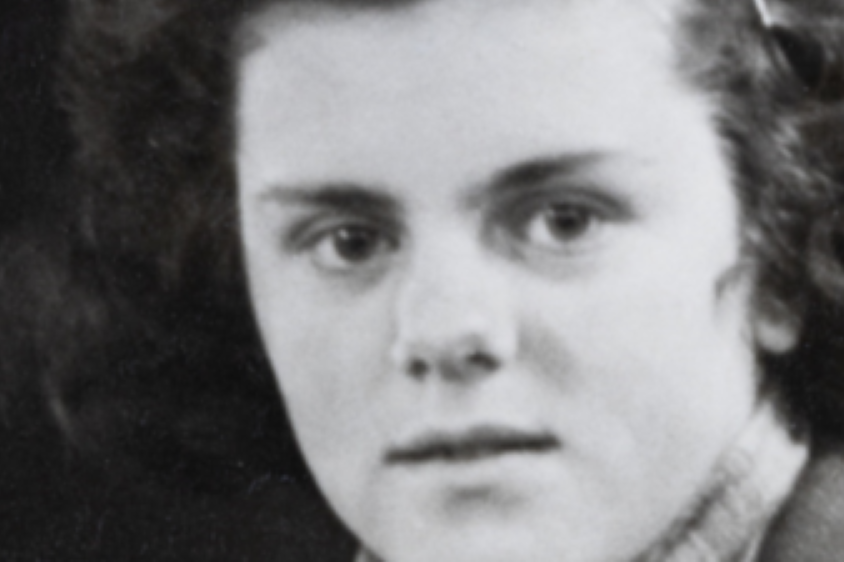Physics pioneer, 98, finally honoured 75 years after major discovery
In 1948 Rosemary Fowler’s findings at the University of Bristol paved the way for critical discoveries that would rewrite the laws of physics.

Your support helps us to tell the story
From reproductive rights to climate change to Big Tech, The Independent is on the ground when the story is developing. Whether it's investigating the financials of Elon Musk's pro-Trump PAC or producing our latest documentary, 'The A Word', which shines a light on the American women fighting for reproductive rights, we know how important it is to parse out the facts from the messaging.
At such a critical moment in US history, we need reporters on the ground. Your donation allows us to keep sending journalists to speak to both sides of the story.
The Independent is trusted by Americans across the entire political spectrum. And unlike many other quality news outlets, we choose not to lock Americans out of our reporting and analysis with paywalls. We believe quality journalism should be available to everyone, paid for by those who can afford it.
Your support makes all the difference.A 98-year-old pioneering physicist who gave up her PhD 75 years ago to have a family has received an honorary doctorate from her old university.
In 1948 Rosemary Fowler’s findings at the University of Bristol paved the way for critical discoveries that would rewrite the laws of physics.
Her discovery of the Kaon particle helped lead to a revolution in the theory of particle physics, and it continues to be proven correct – predicting particles such as the Higgs boson, discovered at Cern in Geneva, Switzerland.
But in post-war Britain, Dr Fowler decided to leave academia when she married fellow physicist Peter Fowler in 1949.
Now, in a private graduation ceremony close to her Cambridge home, Nobel prize-winning University of Bristol Chancellor Sir Paul Nurse conferred an honorary Doctor of Science on her.
Dr Fowler said she feels “very honoured”, but added: “I haven’t done anything since to deserve special respect.”
Sir Paul praised Dr Fowler’s “intellectual rigour and curiosity”, adding that she “paved the way for critical discoveries that continue to shape the work of today’s physicists, and our understanding of the universe”.
In 1948, Bristol’s cosmic ray physics team, led by Professor Cecil Powell, were hunting for new fundamental particles.
They had already found the pion, for which Prof Powell would be awarded the Nobel Prize in 1950.
Then just 22, Rosemary Fowler (nee Brown) spotted something when viewing unusual particle tracks – a particle that decayed into three pions (a type of subatomic particle).
She said: “I knew at once that it was new and would be very important.
“We were seeing things that hadn’t been seen before – that’s what research in particle physics was. It was very exciting.”
The track she was looking at, later labelled k, was evidence of an unknown particle, now known as the kaon or K meson.
Surprisingly, the k track was the mirror image of a particle seen before by colleagues in Manchester, but the Manchester team’s track decayed into two pions, not three.
Trying to understand how these mirror images were the same, yet behaved differently, helped lead to a revolution in the theory of particle physics.
The year after the discovery, Dr Fowler left university having published her discovery in three academic papers.
She was born in Suffolk in 1926, and grew up in Malta, Portsmouth and Bath as her family travelled for her father’s job as a Royal Navy engineer.
During the Second World War her school moved to the countryside, and she recalls their family home near Bath being strafed by the Luftwaffe.
As a child, Dr Fowler found maths and science were easy, while writing was hard. She was the only girl in her year to go to university.
She became one of the first women to be awarded a first in physics, and went on to have three children, who all studied science, with Professor Peter Fowler, who died in 1996.
Their daughter, Mary Fowler, studied maths and then geophysics at Cambridge and had an academic career in Switzerland, Canada, London and finally Cambridge, where she was the Master of Darwin College from 2012 to 2020.
She said: “I’m really pleased for my mother. As a child I wanted to be a physicist because it seemed to be so exciting.
“With both parents being physicists, physics and research was a normal topic of conversation across the kitchen table.”